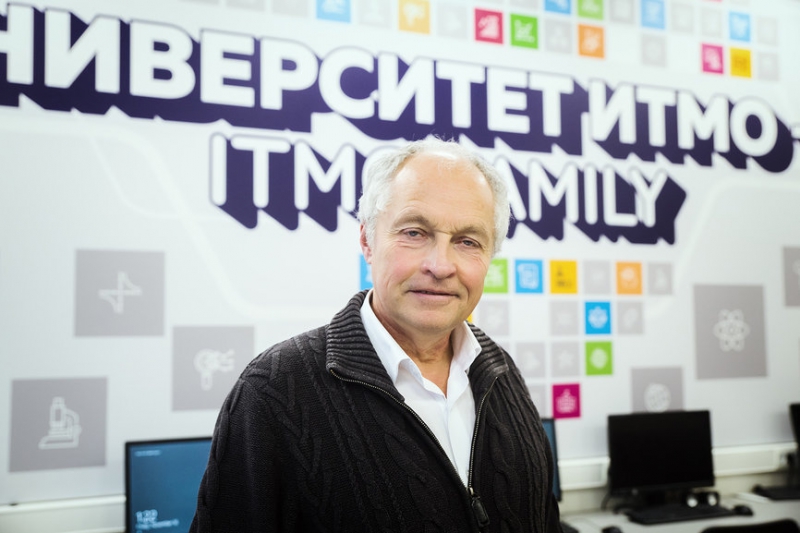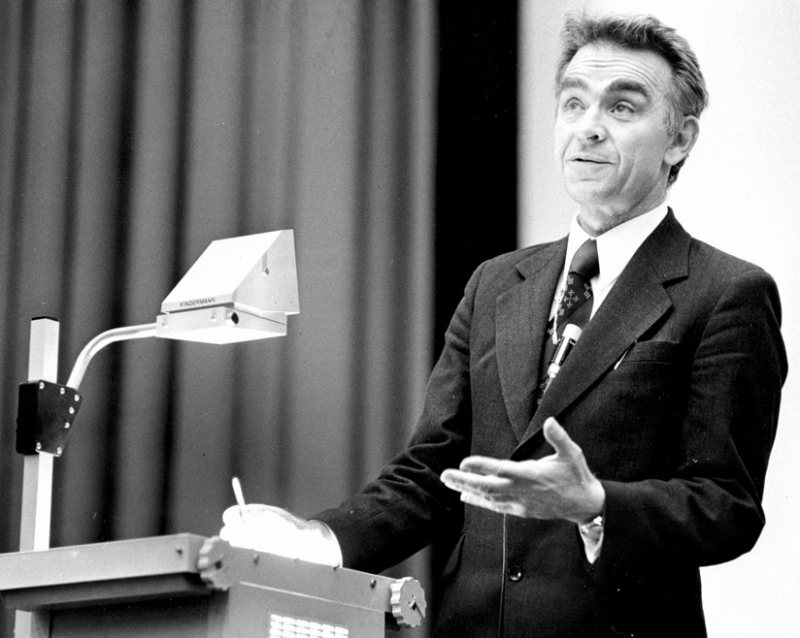ITMO University continues to invite established lecturers from different universities. Sergei Tihodeev is a lecturer from Lomonosov Moscow State University who is renowned for his research in the field of electrodynamics and nonlinear optics. During a course that ended last week, Mr. Tihodeev told the students about an effective method for solving Maxwell's equations. ITMO.NEWS asked the professor about the possible applications of his research, the achievements of ITMO's Faculty of Physics and Engineering and further collaboration plans.

Tell us about the research fields you've been recently working in.
It is believed that a theoretician has to completely change their research area every seven years, otherwise they "slumber" and lose qualification. Still, I've been focusing on the field of electrodynamics for 15 years already, as it interests me the most. When I just started, I worked on the general theory of nonequilibrium processes, a topic that only some ten of my colleagues would've understood. I focused on the Keldysh diagram technique during my studies at the university and then during my PhD program at the Lebedev Physical Institute of the Russian Academy of Sciences. My teacher was Leonid Keldysh, whose contribution to science can be compared with that of Enrico Fermi and other founders of solid-state physics.
The Keldysh diagram technique for relaxation processes with regard to correlation is a topic of such complexity that after my research was published, my articles got ten, twenty citations at most. At the end of the Soviet era, when financing issues became most pressing, I understood that I just couldn't continue like that and I had to find tasks that would be interesting to not just five, but at least 50 colleagues. I started research in the field of semiconductor nanostructures (long before Rosnano was founded), then found a research field where I could apply the diagram technique for nonequilibrium processes (spectroscopy and manipulation of single molecules, nanomotors). Then I also started research in the field of electrodynamics, namely solving Maxwell's equations in complex spatially-modulated media: photonic crystals and metamaterials. I also started teaching.

During the Soviet times, a scientist could work on an important, complex, but obscure topic and get stable financing. Nowadays, you have to consider the demand and work in fields that are currently popular. What do you think about this change?
I was in the USA during the dissolution of the Soviet Union. At that time, I knew for sure that I didn't want to stay in a foreign country where all they do is write projects to compete for financing. Still, in just a couple of years, I had to start doing the same here.
I guess it's inevitable in the conditions of the market economy. Scientists have to constantly prove that their activities are useful. Just think about it: in the 20th century, humanity literally got addicted to science. Thanks to scientific achievements, our lives changed dramatically. Still, few really recognize that. By cutting down on financing science governments eat the seed corn. If this goes on, there'll soon come a time when people will no longer understand how the simplest switches work. Without public interest in science and well-organized education it is complete degradation that we'll be facing. In order for the high-tech production to function, we need to "produce" highly educated people.
Read full interview via ITMO.NEWS
Dmitry Lisovsky
Journalist
Vasilii Perov
Translator
